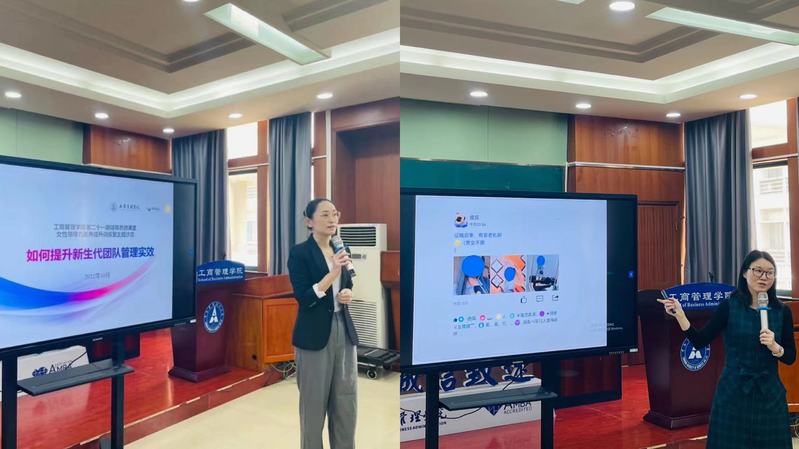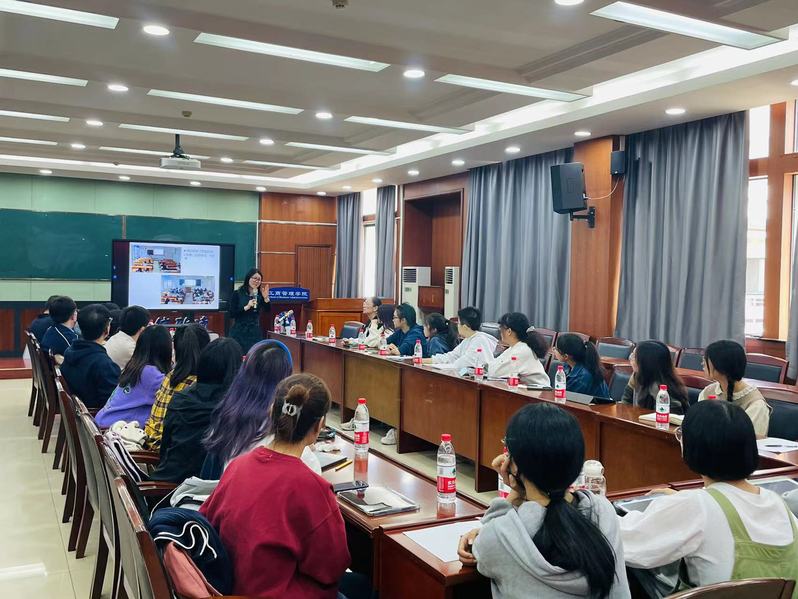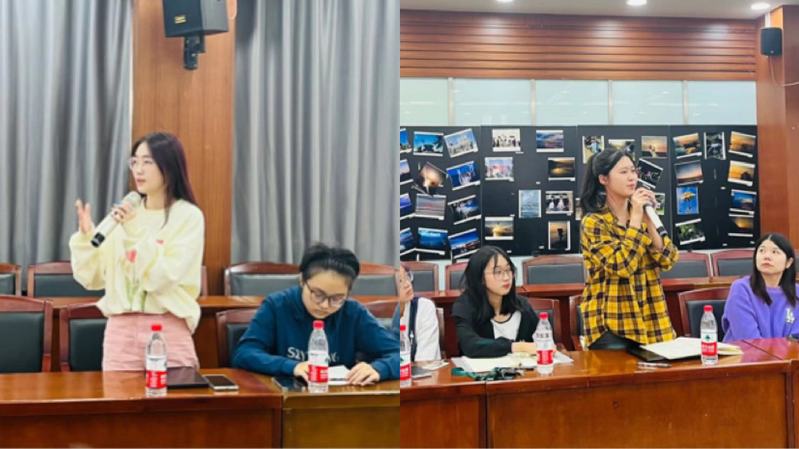“How to improve the team management for the new generation?” In the afternoon of 21st October, the 22nd Micro Class for the Counsellor and the third theme salon of the Female Leadership Quality Improvement Training Camp was held in the conference room on the fifth floor of Wenquan Building. The activity focused on the topic of “How to improve the team management for the new generation”. In the activity, the speech was delivered by Professor Wang Shuhong, from Human Resource Management major, and hosted by Li Fang, Deputy Secretary of the Party Committee of the School. And the counsellor of the Office of Students Affair and campers of Female Leadership Quality Improvement Training Camp attended this management class together, where faculties and students discussed the salon topic from different perspectives.

“How can counsellors manage the new generation of students?” “How to grasp the characteristics of students to innovate management methods, and enhance the influence and guidance of counselors?”...... Li Fang, Deputy Secretary of the Party Committee of the SBA directly pointed out the situation and problems facing the work of students. She stressed that at this stage, most of the students in colleges and universities were the new generation who grew up under superior family environment and good social conditions, and they showed different characteristics from the students in the past. This poses new challenges to the student management work of counselors, and it is imperative to innovate ideas for student management.

Professor Wang Shuhong introduced the concept of “new generation” with cases that are close to life, and summarised the characteristics of the new generation of students from several aspects - a decreasing sense for authority, an increasing self-consciousness, a greater sensitivity to information and a higher demand for work and life. These characteristics also increased requirements for counsellors - the mandatory one-size-fits-all management can not meet the needs of reality, which requires counsellors to change their mindset, explore innovative student-oriented work ideas, and implement identity, participation, growth, experience and digital management. Afterwards, Wang Shuhong discussed the implementation cases of the new management style with the students and faculties, based on her personal experience of visiting enterprises, which was extended from enterprises to universities. She also pointed out that “As managers of new generation teams or new generation students, we should pay attention to the improvement of our personal abilities and build our personal influence from both hard and soft rights.”

Under the guidance of Li Fang and Wang Shuhong, students and faculties explored, thought and discussed together with questions. The students of Female Leadership Quality Improvement Training Camp brought up many small team management issues that they face in daily lives - such as the Bowen Cup group, departmental work, elective course groups, etc. They turned big topics into small problems. Li Fang and Wang Shuhong, as well as the counsellors and faculties present, discussed the solutions with the students together, and how to integrate theories into the reality to solve real problems. The discussion also inspired students to exercise their leadership skills in daily work and study. Finally, Li Fang encouraged everyone: “University is the place of seeking way and finding way, students should keep the impetus and advantages of the new generation and summarise experience in practice.”
This is the 22nd Micro Class for Counsellors of SBA as well as the third theme salon of the Female Leadership Quality Improvement Training Camp. The Micro Class for Counsellors is an important platform of the quality improvement project of the School’s counsellor team, and the Female Leadership Quality Improvement Training Camp is the special education platform established by Research Center for Female Leadership and Student Career Development of ZUEL. They are jointly committed to building a diversified and open communication and training system for faculties and students. Students and faculties jointly attended the activity, and they also raised questions and discussed solutions from different angles, where the atmosphere was lively. The event achieved good effects.
